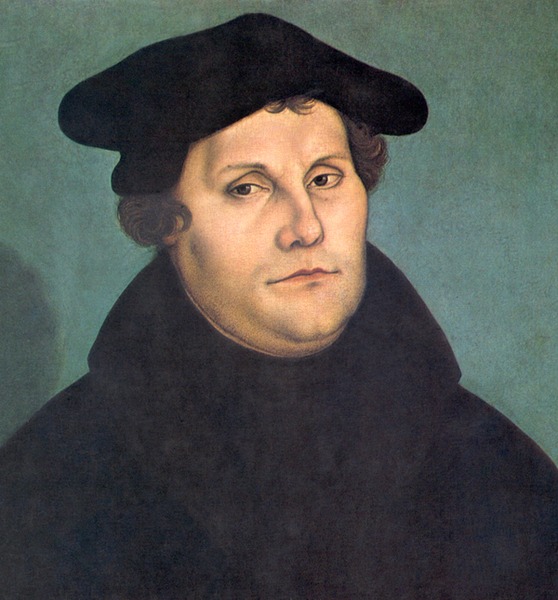*Image Credit: Wikimedia Commons Fifteen centuries after the death of Christ, the Catholic Church had grown to become the most influential organization in Western Europe. A theology professor and Augustinian monk at the University of Wittenberg, Martin Luther, shifted the course of Christianity with a letter to Archbishop Albert of Mainz on October 31, 1517. The accompanying questions would go on to be known as The Ninety-Five Theses, the seminal document in the Protestant Reformation that fractured the continent along religious lines. Corruption in the Catholic Church was not a new development. Over the course of centuries, wealth had grown exponentially for the organization as landowners ceded property to the local parish in exchange for additional favor in the afterlife. Pope Sixtus IV, who ordered the construction of the Sistine Chapel, began offering these “indulgences” to those who wished to buy their deceased loved ones out of the fires of hell in the late 15th century, bringing further profit into Catholic coffers. When Pope Alexander VI, keeper of mistresses and father of multiple children, expanded the practice during his time as the bishop of Rome, the defilement of the sacred seemed complete. Beyond the faults of the men at the helm, Luther’s Ninety-Five Theses brought to light serious issues regarding the nature of belief in Christ. Much of his writing amounts to theological questions about specific practices that seemed to ignore or even counteract the Bible. Writing out a “Disputation of Martin Luther on the Power and Efficacy of Indulgences” in Latin, he posted them on the door of Wittenberg’s Castle Church on October 31, 1517 and sent a copy to Albert of Mainz, who sold the special reprieves in Germany, and his superior, the bishop of Brandenburg. Fueled by the printing press and a translation into common German by his friends early in 1518, Luther’s ideas had soon made it to towns all over Europe. Even as Pope Leo X attempted to counter the points made in the document with Exsurge Domine in 1520, a rebellion against the authority of the Catholic Church took root, particularly across the northern half of Germany and Scandinavia. At the same time, Ulrich Zwingli began attacking the rituals associated with mass from his pulpit in Switzerland. It quickly became clear change would mean an outright split from Rome instead of merely a stripping away questionable practices. In early January 1521, as his works became more extensively read, Luther was officially excommunicated from the Roman Catholic Church. The Diet of Worms, convened by Holy Roman Emperor Charles V, would determine his fate four months later. Condemned as a heretic and declared a criminal on May 25th, the court decided to ban Luther’s writings and officially absolved anyone who might kill him of any guilt. On the way back from his testimony before the panel just a month before, Luther had been picked up by men in the employ of Frederick III of Saxony, a friendly leader of the province near the center of the Holy Roman Empire. Hiding the monk away in Wartburg Castle, Frederick allowed Luther to continue writing — and the wanted man produced a series of forceful attacks on the practices of the Catholic Church and translated the Bible’s New Testament from its original Greek into German. When he returned to Wittenberg in March 1522, Luther was at the head of a rebellion — alongside John Calvin and Zwingli — that would take centuries to solve and cost countless lives in civil wars and persecution throughout the continent. Driven by an increase in literacy, the Protestant Reformation split the followers of Christianity in Western Europe for good. Also On This Day: 1876 – More than 200,000 are killed when a cyclone tears through India 1913 – The Lincoln Highway, stretching from Times Square in New York City to Lincoln Park in San Francisco, becomes the first coast-to-coast road in the United States 1943 – A United States Navy F4U Corsair completes the first radar-guided interception of an enemy aircraft 1956 – Britain and France bomb Egypt in a bid to reopen the Suez Canal 2000 – The first resident crew of the International Space Station is launched on Soyuz TM-31
October 31 1517 CE – Martin Luther Inadvertently Launches the Protestant Reformation with The Ninety-Five Theses
*Image Credit: Wikimedia Commons Fifteen centuries after the death of Christ, the Catholic Church had grown to become the most influential organization in Western Europe. A theology professor and Augustinian…
457
